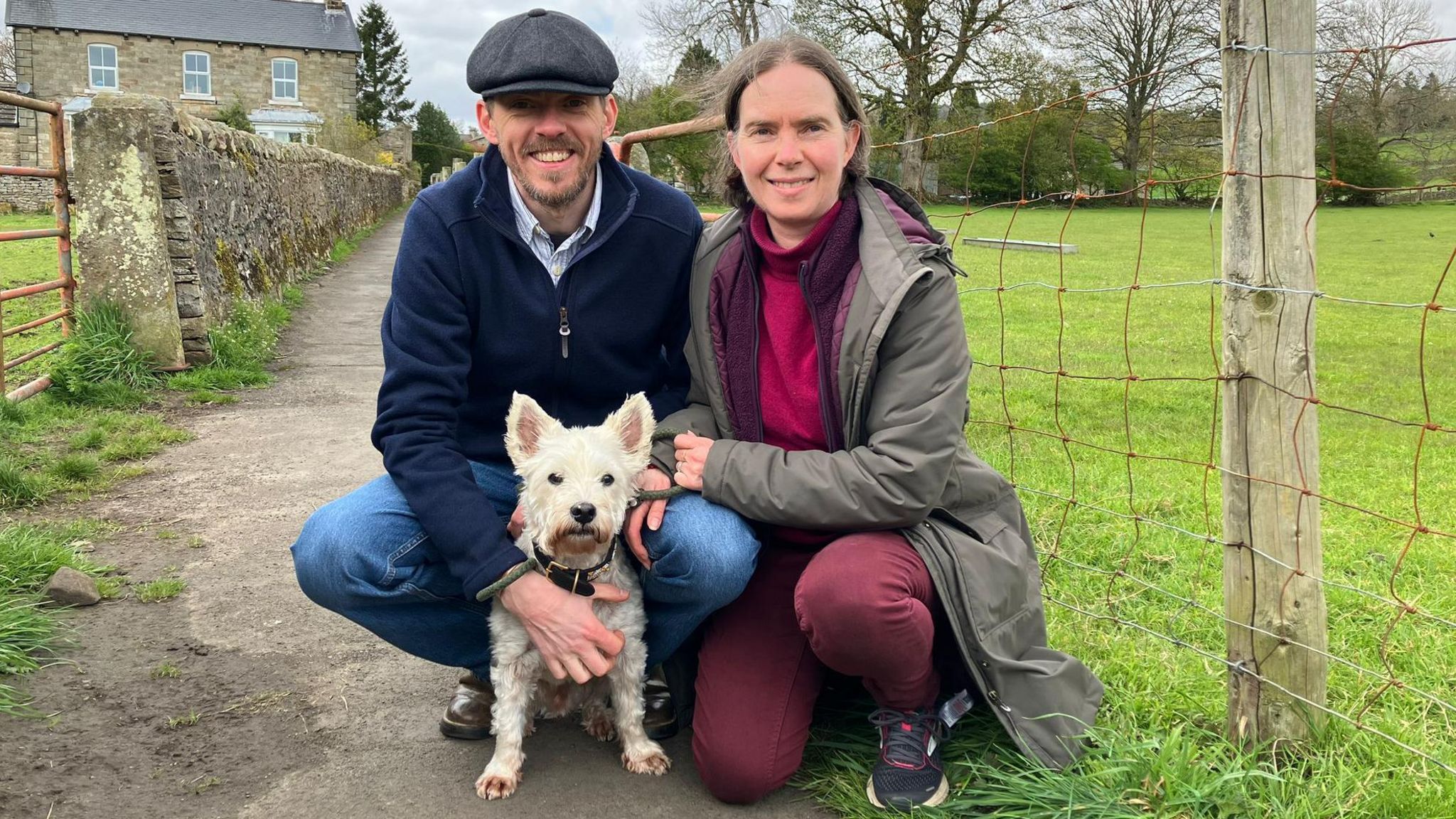
Paul Harris, who receives PIP payments, had to stop working when his anxiety got so bad he would lock himself in the toilets at work
Disabled people could face major changes to how the personal independence payments (PIP) benefit works, as the government tries to tackle the rising number of claimants with a mental health condition.
Reforms to PIP could include stopping regular cash payments, and instead offering claimants one-off grants for things like home adaptations.
The number of people claiming PIP in relation to anxiety and depression has soared in recent years, leading Prime Minister Rishi Sunak to say on Monday: "We need to do something about that."
The disability charity Scope described the plans as a "reckless assault on disabled people".
The plans are subject to a 12-week consultation, ending on 23 July.
It is highly unlikely there will be enough time to implement the changes before the general election, which is expected to take place by the end of the year.
How much is PIP? Who can claim it?
PIP was introduced in 2013 to replace Disability Living Allowance for people of working age to help with extra living costs caused by long-term disabilities or ill health.
How much people are given depends on how difficult they find everyday tasks and getting around. The maximum weekly payment is £184.30.
You can claim PIP whether you have a job or not - and many claimants have told BBC News disability correspondent Nikki Fox the payments are essential to help them stay in work.
The most recent statistics, external say more than 3.3 million people in Britain receive PIP to help with the extra cost of living with a health condition or disability. Some claimants are of retirement age but are eligible because they received support when they were of working age.
The cash can be used for things like special diets, additional laundry, accessible transport and higher insurance costs.
The government says spending on PIP is expected to grow by 52% from 2023/24 to £32.8bn by 2027/28.
The number of monthly new claimants in England and Wales, where the main condition was anxiety and depression, grew from an average of 2,200 a month in 2019 to 5,300 a month last year.
And the government says the rise to the benefits bill is "unsustainable".
In Scotland, PIP is being replaced with Adult Disability Payment, external.
Paul Harris, from Barnard Castle, gets £72.65 a week in PIP payments to help with extra costs associated with his anxiety and depression - such as for specialist therapy apps and counselling.

Mr Harris and his wife Kim moved to County Durham from Bedfordshire when he stopped working and began claiming personal independent payments
He stopped his job as a property manager in 2016 after developing panic attacks that got so bad he would burst into tears in the office and lock himself in the toilet.
He has not been able to work since then and says PIP is the "last stronghold" of benefits that can support him.
Mr Harris said: "I used to call myself zero, because I had zero money coming in. I had no job... so in a weird way, just a little bit of money coming in just sort of changed those thoughts."
He does receive employment and support allowance, but cannot claim job seekers' allowance because he says his mental health is a barrier to applying for jobs, despite previously seeking support from the Jobcentre.
He said the money he receives "does not solve the problems", adding: "It's not a miracle cure - it doesn't mean we can go off on holidays and live this frivolous lifestyle."
Mr Harris does not believe there is enough long-term support available for those with mental health issues.
The proposals include making changes to the eligibility criteria for PIP.
It would consider whether current descriptors - such as the need for aids and appliances - are good indicators of extra costs.
Other options include one-off grants for significant costs such as home adaptations or expensive equipment, and reimbursing claimants who provide receipts for purchases of aids, appliances or services.
The consultation will also consider whether people with long-term conditions and disabilities would need to be assessed at all.
The proposals come after the prime minister pledged to strip GPs of their power to sign people off work as part of a plan to tackle what he calls the UK's "sick note culture".
'Comprehensive reforms'
Speaking at a DHL distribution centre in Essex, on Monday, Mr Sunak said "something has gone wrong since the pandemic" leading to more people not working because of long-term ill health.
About half of those were citing anxiety, nerves or depression.
And an increase in people unable to work because of mental-health conditions "should really worry us".
"Of course if you're suffering from mental health, you should get the treatment and the support that you need," Mr Sunak said.
"But we should also not say that you can't do any work, especially when the research shows that work can be good for your wellbeing."
While PIP is available for people in work as well as out of work, Mr Sunak said he wanted to ensure it was supporting people effectively - "and in particular that it deals with mental-health conditions in an appropriate way".
The changes were part of "the most comprehensive reforms to our welfare system that we've seen in a while", he added.
James Taylor, executive director of strategy at disability equality charity Scope, said the plans do not fix the underlying issues faced by disabled people.
He said: "It’s hard to have any faith that this consultation is about anything other than cutting the benefits bill, no matter the impact."
Previous research , externalfrom Scope suggests households with at least one disabled adult or child face an estimated average extra cost of £975 a month to have the same standard of living as non-disabled households.
Labour’s acting shadow work and pensions secretary, Alison McGovern, said the consultation showed the government was “out of ideas and out of time".
"We want to see a system that allows disabled people to live independently and enable as many as possible to work," she said.
A spokesperson for the Liberal Democrats said: "This is yet another desperate pre-election gimmick. If this Conservative government was serious about helping people back into work they'd focus on fixing the NHS and ensuring you can see a GP when you need to."
From BBC
